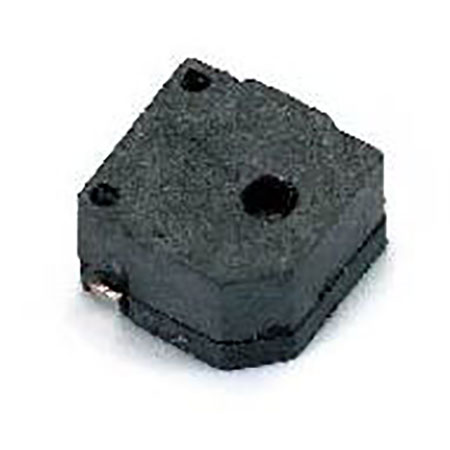Piezoelectric Transducers
| Item No.: | PAC-ST-0503-P |
Supplier Details
Country: Taiwan
City: Taoyuan City 32062, Taiwan, R.O.C.
Address: 6F., No. 25-2, Ji-Lin Road, Chung Li District. (Chung Li Industrial Park)
TEL: +886-3-4333210
Fax: +886-3-2617799

Online Showroom:
100 Products
Features:
Today AV receivers are a common component in a high-fidelity or home-theatre system. The receiver is generally the nerve centre of a sophisticated home-theatre system providing selectable inputs for a number of different audio components like record players, compact-disc players and CD-RW recorders, and tape decks (like video cassette recorders (VCR) and video components (DVD players and DVD recorders, video game consoles, and television sets).
With the decline of gramophone record vinyl discs, modern receivers tend to omit inputs for phonograph turntables, which have separate requirements of their own. All other common audio/visual components can use any of the identical line-level inputs on the receiver for playback, regardless of how they are marked (the "name" on each input is mostly for the convenience of the user). For instance, a second CD player can be plugged into an "Aux" input, and will work the same as it will in the "CD" input jacks.
Some receivers can also provide digital signal processors (DSP) to give a more realistic auditory illusion of listening in a concert hall. Digital audio S/PDIF and USB connections are also common today. The home theater receiver, in the vocabulary of consumer electronics, comprises both the 'radio receiver' and other functions, such as control, sound processing, and power amplification. The standalone radio receiver is usually known in consumer electronics as a tuner.
Some modern integrated receivers can send audio out to seven loudspeakers and an additional channel for a subwoofer and often include connections for headphones. Receivers vary greatly in price, and support stereophonic or surround sound. A high-quality receiver for dedicated audio-only listening (two channel stereo) can be relatively inexpensive; excellent ones can be purchased for $300 United States or less. Because modern receivers are purely electronic devices with no moving parts unlike electromechanical devices like turntables and cassette decks, they tend to offer many years of trouble-free service. In recent years, the home theater in a box has become common, which often integrates a surround-capable receiver with a DVD player. The user simply connects it to a television, perhaps other components, and a set of loudspeakers.
Today AV receivers are a common component in a high-fidelity or home-theatre system. The receiver is generally the nerve centre of a sophisticated home-theatre system providing selectable inputs for a number of different audio components like record players, compact-disc players and CD-RW recorders, and tape decks (like video cassette recorders (VCR) and video components (DVD players and DVD recorders, video game consoles, and television sets).
With the decline of gramophone record vinyl discs, modern receivers tend to omit inputs for phonograph turntables, which have separate requirements of their own. All other common audio/visual components can use any of the identical line-level inputs on the receiver for playback, regardless of how they are marked (the "name" on each input is mostly for the convenience of the user). For instance, a second CD player can be plugged into an "Aux" input, and will work the same as it will in the "CD" input jacks.
Some receivers can also provide digital signal processors (DSP) to give a more realistic auditory illusion of listening in a concert hall. Digital audio S/PDIF and USB connections are also common today. The home theater receiver, in the vocabulary of consumer electronics, comprises both the 'radio receiver' and other functions, such as control, sound processing, and power amplification. The standalone radio receiver is usually known in consumer electronics as a tuner.
Some modern integrated receivers can send audio out to seven loudspeakers and an additional channel for a subwoofer and often include connections for headphones. Receivers vary greatly in price, and support stereophonic or surround sound. A high-quality receiver for dedicated audio-only listening (two channel stereo) can be relatively inexpensive; excellent ones can be purchased for $300 United States or less. Because modern receivers are purely electronic devices with no moving parts unlike electromechanical devices like turntables and cassette decks, they tend to offer many years of trouble-free service. In recent years, the home theater in a box has become common, which often integrates a surround-capable receiver with a DVD player. The user simply connects it to a television, perhaps other components, and a set of loudspeakers.

 English
English
 中文繁體
中文繁體 Русско
Русско Deutsch
Deutsch Español
Español Português
Português Français
Français Türk
Türk Italiano
Italiano Nederlands
Nederlands हिन्दी
हिन्दी Bahasa Indonesia
Bahasa Indonesia
